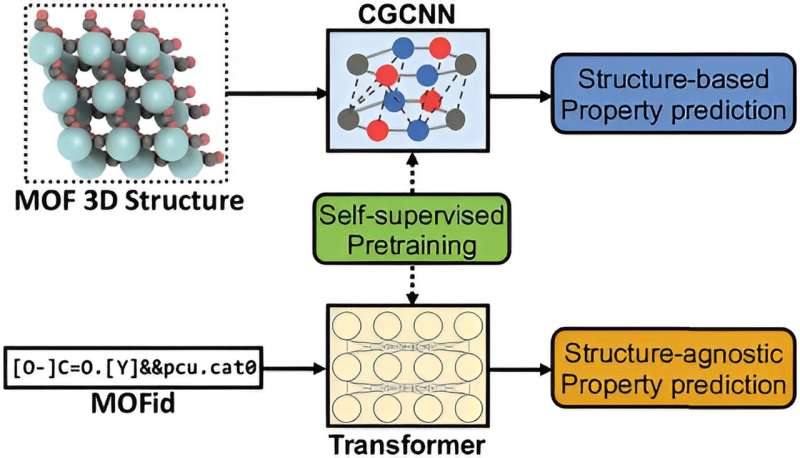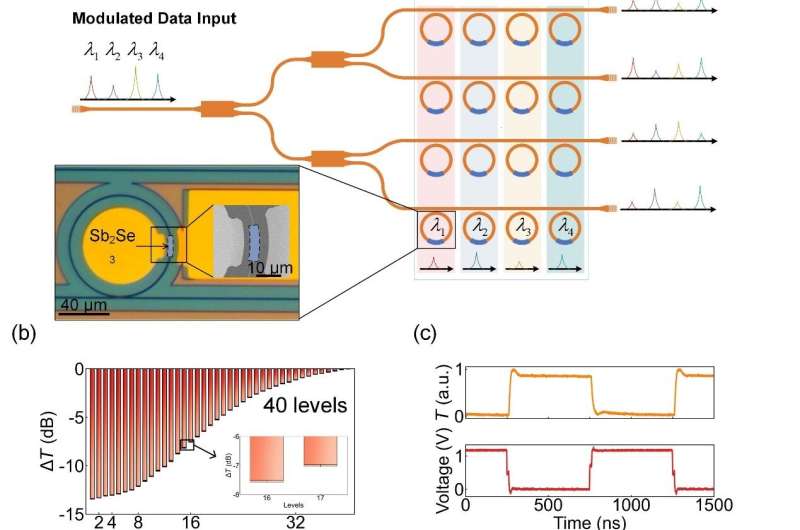More metal-organic frameworks, fewer problems: A self-supervised transformer model for property prediction
Updated: 2023-07-31 21:46:03
 For decades, metal-organic frameworks (MOFs) have been captivating researchers because of their wide range of applications: gas absorption, water harvesting, energy storage and desalination. Until now, quickly and inexpensively selecting the top performing MOFs for specific tasks has been challenging. Enter MOFormer, a machine learning model that can achieve higher accuracy on prediction tasks than leading models without explicitly relying on 3D atomic structures.
For decades, metal-organic frameworks (MOFs) have been captivating researchers because of their wide range of applications: gas absorption, water harvesting, energy storage and desalination. Until now, quickly and inexpensively selecting the top performing MOFs for specific tasks has been challenging. Enter MOFormer, a machine learning model that can achieve higher accuracy on prediction tasks than leading models without explicitly relying on 3D atomic structures.
 Technological advancements like autonomous driving and computer vision are driving a surge in demand for computational power. Optical computing, with its high throughput, energy efficiency, and low latency, has garnered considerable attention from academia and industry. However, current optical computing chips face limitations in power consumption and size, which hinders the scalability of optical computing networks.
Technological advancements like autonomous driving and computer vision are driving a surge in demand for computational power. Optical computing, with its high throughput, energy efficiency, and low latency, has garnered considerable attention from academia and industry. However, current optical computing chips face limitations in power consumption and size, which hinders the scalability of optical computing networks.